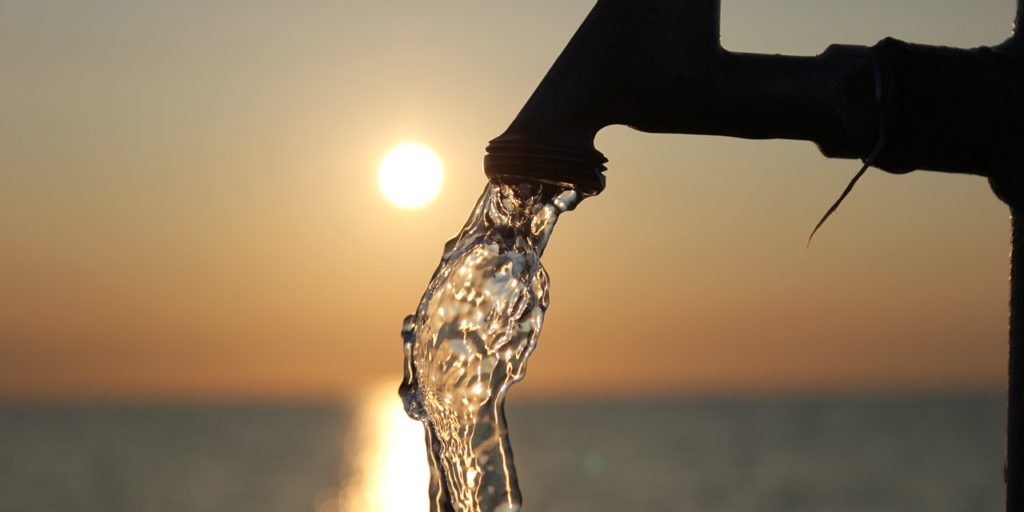- Class-action lawsuits targeted cybersecurity, worker rights in 2021 - December 31, 2021
- Ponzi scheme class-action lawsuit an ‘inventive’ brand of litigation - December 20, 2021
- Failing to adequately safeguard data results in $3.44M settlement - November 30, 2021
By Tony Poland, LegalMatters Staff • Class-action lawsuits brought against the federal government over the lack of safe drinking water on First Nations lands are another example of the effectiveness of turning to the courts when political options fail, says Toronto class-action lawyer Margaret Waddell.
Indigenous leaders have launched parallel lawsuits in Federal Court and the Manitoba Court of Queen’s Bench, seeking $2.1 billion in damages, according to news reports. They claim the government violated the Charter rights of a large class of First Nations people by failing to provide them with safe drinking water.
“It is just shameful that reserves would not consistently have quality drinking water,” says Waddell, a partner with Waddell Phillips Professional Corporation, “It’s something we all take for granted in metropolitan areas. But the problem is not just in remote areas. One representative band is Curve Lake and that’s literally just outside Peterborough deep in cottage country and surrounded by fresh water.”
According to the Government of Canada website there are currently 52 long-term drinking water advisories in effect in 33 Indigenous communities.
Pledge to end all long-term water advisories
While campaigning during the 2015 federal election campaign, Justin Trudeau pledged to eliminate all long-term water advisories on First Nations lands by March 2021. However, last year he announced that the deadline could not be met and it was pushed back five years.
“The government has been saying they’re going to fix things for years. It’s expensive to build effective infrastructure, especially in remote areas, but that’s no excuse when you consider that care for Indigenous people on reserves is core to the relationship between our First Nations and the government,” Waddell tells LegalMattersCanada.ca. “The federal government created these reserves and based on the honour of the Crown, they have an absolute duty to care for the people on them and to ensure that their basic living conditions are safe.”
Tataskweyak Cree Nation Chief Doreen Spence says their lawsuit was filed in an attempt to spur a resolution.
“These inequalities of not having clean drinking water is unacceptable and basically I hope that moving forward with this action we hope that this will be rectified because I believe we are all Canadian and we deserve clean drinking water like everybody else,” Spence tells CTV News. “We couldn’t sit back and wait because we know it’s never going to happen if we don’t take a step forward.”
Class action lawsuit can be a ‘powerful tool’
Waddell says a class action lawsuit can be a “powerful tool” to force change.
“There is more of an immediacy to dealing with the problem rather than just leaving it to struggle its way through political channels,” she says. “Many First Nations bands are using the court system to press their point when they’re not being heard or not being addressed reasonably by the government.
“This problem goes back decades. The government made an election commitment to have this fixed. There’s a point when you need to say enough is enough,” Waddell adds. “The class action gives the First Nations the option to pool resources from across the country, allowing them to speak effectively with one voice to get a resolution.”
- Representative plaintiffs ought to be rewarded for their efforts
- Class action lawsuits can provide punch in an overtime fight
- ‘The demise of waiver of tort as an alleged cause of action’
She says improving the quality of drinking water is “a fixable problem.”
“It’s just a matter of political willingness and allocation of resources,” Waddell says. “It is one of those cases where there are constitutional mandates the government must fulfill. Scarce financial resources is not an answer when dealing with constitutional rights. This has to be a priority and you cannot put other things in front of it on the list.”
Looking to force government to act quickly
The litigation is likely to spur more immediate action from the government.
“Courts will insist on schedules being met or there will be consequences. It’s a pretty straightforward case. The parties can get to the core issues on this very quickly and press it forward. The Plaintiffs are doing an excellent job of that,” Waddell says. “Remarkably the government is perhaps being less aggressive in its defences and are not slowing it down as they have in many other cases.
“The First Nations have said that they are hopeful that it will resolve outside of the courtroom and certainly the government has not said they’re going to fight this one to the death,” she adds.
Waddell says one noteworthy aspect about the class actions is that First Nations have to opt in to be part of the lawsuit but their members are automatically included unless they opt out.
“It is a little bit different than what the class-action legislation calls for but it’s an important recognition of the self-determination of the First Nations,” she says. “Each band has that right to choose to participate, as opposed to being pulled in automatically and having to make a choice to proactively exclude themselves.”
More from Waddell Phillips Professional Corporation:


Pingback: Preparing for the challenges of the ‘grey divorce’ ⋆ LegalMattersCanada